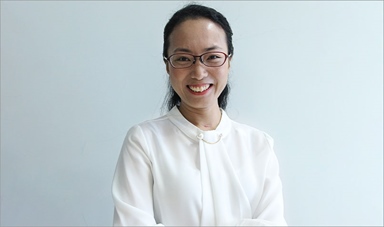Loading component...
At a glance
By Caroline Zielinski
When Kathryn Wong CPA graduated with a bachelor of commerce degree in 1998, little did she know that, 13 years later, she would be working as a nutritionist with the same types of people she once managed as an accountant.
In 2011, the Malaysian national had been working in Shanghai for seven years and was making plans to move back home.
It was then that Wong received devastating news that shook her to her core – her father had been diagnosed with late-stage lung cancer.
“In the end, he passed away within two months of the diagnosis. It was really unusual how fast he progressed,” she recalls.
Her father’s sudden, devastating death made Wong reconsider her career trajectory in finance and the lifestyle that often accompanies it – the long hours sitting at a desk, the frequently unhealthy food choices and the culture of overwork.
“I had all these questions about what led to cancer, and I slowly realised that prevention is better than cure,” she says.
Wong’s research into disease prevention helped her understand the role of good nutrition and the importance of developing healthy habits, as well as the effect stress can have on mental and physical wellbeing.
“With support from my husband, I decided to take a career break and dedicate more time to understanding the benefits of healthy eating when it comes to living our best lives.”
Ready client base
This is when Wong began the second phase of her professional life.
She enrolled in nutrition courses and began to share her new-found knowledge with as many people as possible, advising family, friends and colleagues about how eating well and living more mindfully could help with conditions such as weight problems, digestion issues, hypertension, diabetes and high cholesterol, among others.
“I gained so much practical experience from the coaching and saw first-hand how nutrition and healthy eating as part of a holistic approach could help improve the health of my clients tremendously,” Wong says.
“The results made me even more passionate about sharing nutrition and healthy eating information through talks, activities, group retreat camps and more.”
It also emerged that the skills Wong gained while working as a consultant in risk management and advisory roles at companies such as KPMG Shanghai opened up access to a new client base: management and senior personnel in the corporate world.
“I had always been client-facing, and had to apply project management and other professional skills to both assist existing clients and win new ones, so I found that when I transitioned into my new career, I was able to use those same skills to convey information about the impact of nutrition and holistic health on the corporate lifestyle,” Wong says.
Being able to talk the corporate language of the C-suite has stood Wong apart from other nutritionists and enabled her to advance her new career much faster than she had anticipated.
“When someone senior within a corporate company needs a health coach, especially in holistic cancer care, which is the most challenging field, I’m very comfortable communicating with them on such a complex topic,” Wong says, adding that her “professional image and technical language” resonate with her corporate clients.
“The all-round training I received from my past career, such as developing soft skills and analytical skills, has equipped me to be self-disciplined, adaptable, prudent, diligent and, above all, ethical in my conduct,” she says.
“My transition into the new role has been smooth, with these skills and mindset already developed.”
Spanning two careers
Building healthy habits, such as good nutrition and regular exercise, is not that different to developing good habits in risk management and financial planning, Wong says – both are underpinned by consistency and awareness.
“We can only improve our financial status and achieve certain financial goals if we incorporate methods into a daily routine, because the results can only be seen after a period of time,” Wong points out.
Wong says her greatest challenges are finding ways to personally motivate her clients. “There is no ‘perfect plan or method’ for everyone. The best plan is one that will be followed consistently over a long period of time.”
However, Wong has found that upskilling herself in emotional management enables her to better advise clients on how to handle their emotions through self-reflection and compassion.
“When I see improved outcomes, I feel so happy for my clients,” Wong says. “I’ve also noticed that as people get better, they try and bring more awareness to their workplace about their improved diet and lifestyle.”
Her greatest wish is to see companies dedicate more funding to staff wellness initiatives. “Wellness is often seen as just a personal goal. There’s usually less budget for informing people about the importance of nutrition for better energy and resilience to stress,” she says.
“Our health is the ‘commonwealth’ of our whole family,” Wong says. “It requires our commitment – time and budgets – and consistency.
“When we empower ourselves to take better care of our body, mind and soul, we can live our lives to the fullest even in challenging circumstances.”
One piece of advice
“When we empower ourselves to take better care of our body, mind and soul, we can live our lives to the fullest even in challenging circumstances.”

